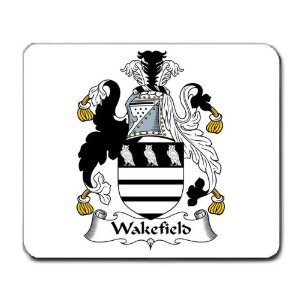
Origin of the Name
In the savage state there were no surnames, and woman was the head of the family. The race was divided into gens, and the children belonged to the gens of the mother. Children did not always receive personal, or given names even, but were numbered and were later named or characterised by some act or circumstance of the individual’s life. Population was sparse and intercourse limited, and such designation was all that was required. When man advanced to barbarism and by force united independent tribes into states and kingdoms, he also assumed the head.ship of the family in the same way. With the advance from the life of hunters to that of herdsmen, tillers of the soil, and builders of cities, population increased and commerce began, and there was need of a better designation of the individual than that of the simple name given to him at birth or acquired by him at a later date. So men were naturally first designated by mention of their fathers as Joshua, the son of Nun and Simon Bar Jonas, Simon the son of Jonas. Thus the patronymic is found in use among the Greeks and Romans and the various races and tribes of Europe.
Men were also designated by the place where they lived or were born, and by their business or occupation, by their office or station, and by some circumstance of life, person, or character,including what may be called nicknames. Among the Teutonic and Celtic People of northern Europe such additional designation of individuals were not hereditary, and did not descend from father to son as a family} or surname. The use of hereditary surnames was introduced in Ireland before it was in England, for Brian Born, king of Muster, who was killed at Clontorp, 1014, prescribed an ordinance that every one should adopt as a surname the name of his father, and thereafter surnames became permanent in Irish families. The Angles. Saxons. Danes, and Normans, in England didn’t generally adopt hereditary surnames until some time during the thirteenth century, so that who-ever pursues a surname into England must expect to lose it as a family name at or before this time. A place name might continue further back as to that part of the family which continuously occupied the particular place.
As to the origin of the name Wakefield there can be no doubt that it is a place name, and originated in the West Riding, of Yorkshire, England,where it is still represented by the city of Wakefield. It appears in the Domesday Book, and is there spelled Wachefell and Wachefeld. When the Angles and Saxons invaded and made themselves masters of England, the Saxons settled in the southern and the Angles in the northern part. See map of England in.597, Encyclopadae Britanica. The Saxons and Angles, or Engles, were kindred people, and drove the prior inhabitants bodily to the west part of the island much as the Indian has been driven west in America.
York and Wakefield are, in the early division, called Deira. Sometime before 589, in a war between Bernicia and Deira, some men of the latter kingdom were captured and sold as slaves in Rome. Gregory noticed their white Ix^dies, fair faces, and golden hair, and asked the trader from what country they came The slave trader said they are Angles. Gregory said: Not Angles, but angels, with faces so angel-like. From what country came they The merchant said: They come from Deira. (See ch. 2. Pa. 40, Green’s larger History English People.) In ch. I,” par. 10, is given the location of these people on the continent. They were kindred, speaking in substance one language, but each its own dialect, though generally they are all of ten called Saxons They all be-longed to the low German branch of the Teutonic family. This hectic difference is noticeable in the naming of their towns in England In the Saxon portion we notice names ending in Wick,ham, ton,ford, indicating the home, town, or crossing of a stream, controlled by some man and bearing his name. On the other hand, the terminal field is a very frequent termination of a town name in that part of England settled by the Engles, and somewhat remote from the Saxons. The Engles also used other terminals. The northern and interior part was at first more sparsely settled, and where a field was at first occupied by a single family there gathered a town which retained the name of the field.
Wakefield received its name, no doubt, when it was a military post and settlement on the frontier of the Engle advance, and the bold and hardy adventurers were required to keep a constant watch to protect themselves against the Britons, whom they had de- spoiled and whose lands they had taken.The old spelling in the Domesday Book has a German appearance, but that may have come from the scribe. The Century dictionary gives wake verb:Anglo-Saxon, wacan; German, wachen and watch: verb, Anglo-Saxon, waccan. The dictionary does not give us the Engle word, which may have been the same or more nearly like the German. There is in Domesday Book a place in Northantonscire, which would be in the territory of the South Angles, named Wacafeld. This being near the line between Engle and Saxon, would represent the Anglo-Saxon verb wacan, to wake, or to watch. Waca- feldâ was in the hundred Claibea, and the holding was under Comes Alan.
Wakefield line
Further Study
Wakefield Banking Kendal
Greenhill & Co
Edward Gibbon Wakefield, Expert in Colonialism
Tags : 1014, Bernicia, Clontorp, Committee of 300, Deira, Domesday Book, Origin of the Surname Wachefeld, Wachefell, Wakefield Family